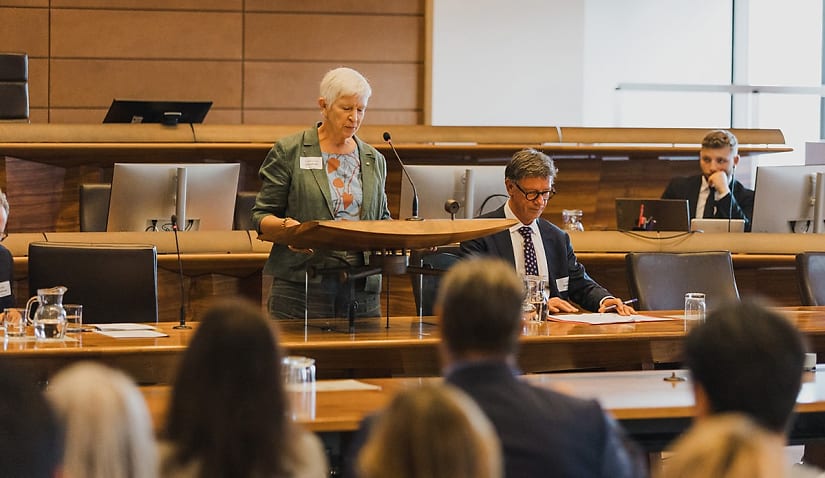At last month’s Minds Count Foundation Annual Lecture, Chief Judge Elizabeth Morris of the Local Court of the Northern Territory spoke about her experiences with fear, isolation, and camaraderie, working in NT-based courts.

Isolation out bush
Speaking on the topic of, “Out Here, It’s Just Me: Legal Practice, Isolation and Wellbeing”, Chief Judge Morris said it is a line that many lawyers in regional and remote practices can relate to, “usually at around 10pm in an office where the only living thing is a flickering fluoro and a half-dead pot plant, you keep meaning to water”.
However, Her Honour noted that city lawyers also experience loneliness, from sole practitioners in the suburbs, to barristers working late in chambers, and in-house counsel without a colleague to debrief. The Chief Justice said, “You don’t have to be hundreds of kilometres from the nearest city to feel isolated. Sometimes isolation is just a locked office door and an unanswered email.”
Remote: Where the most rewarding work happens
“There’s a particular intimacy to practising law in small communities … You become used to blurred boundaries,” the Chief Judge said.
It is where the “most rewarding work happens”, and law is personal, not just abstract; however, it is also here that law becomes emotionally intense due to the high demand, and the resource intensity, Her Honour emphasised.
Chief Judge Morris said: “It’s where you see justice and community intersect and sometimes collide. But there is a cost. Lawyers in these contexts carry a weight that’s rarely visible and often unacknowledged … It’s all compounded by a lack of structured support.”
Without formal debriefings after stressful matters, wellness policies, or EAP numbers taped to the wall, “if you had a rough day in court, your options were limited,” Her Honour added.
It all comes down to the individual coming up with their own methods, the chief judge said – going for a run, talking to a colleague “who also wasn’t drowning”, or having a glass of wine, were often one of the few options.
The philosophy of fear
“For lawyers, fear takes a very particular shape. It’s professional, ethical, existential,” Chief Judge Morris said. She added that the fear of mistakes and failure threatens lawyers’ “sense of identity, of competence, control, integrity”.
It is a self-doubt that “sits beside you at night when you’re drafting bail submissions and whispers, ‘Are you sure that’s right?’ It rides with you between circuit towns and says, ‘What if I’ve missed something? Or why did I say that?‘” she added.
She noted that “when you’re out there alone, perhaps the only lawyer for hundreds of kilometres, fear can become a kind of companion”.
Despite this overbearing sense of fear, Chief Judge Morris emphasised: “You are part of the world you are trying to serve. You are not apart from it. You’re in it. Messy, flawed, frightened, hopeful, human. That closeness can be both grounding and heavy.”
Creating a psychologically safe space
“Let me offer a picture of connection. It’s a courtroom in a remote community. The judge, the interpreter, the elders, the police, prosecutor, the defence lawyer, the defendant, the community members are all sitting around a table. Everyone is listening,” the Chief Judge said.
“There’s no raised voices, just law done humanly. This is what a psychologically safe space looks like. A place where people can speak truthfully without fear. A place where law and compassion meet.”
Creating structures which lead to inevitable connection is crucial, Her Honour said.
“We must fund rural placements that include real support, not just good intentions. We must design systems where a young lawyer in a small town knows that someone has their back,” she added.
“In the legal world, we sometimes confuse resilience with toughness.”
“Toughness shuts out emotion. Resilience lets it in and still carries on out here. That’s what sustains us. Not the absence of fear, but the presence of meaning.”
Disclaimer: The managing editor of Lawyers Weekly is a board director of the Minds Count Foundation.

Carlos Tse is a graduate journalist writing for Accountants Daily, HR Leader, Lawyers Weekly.